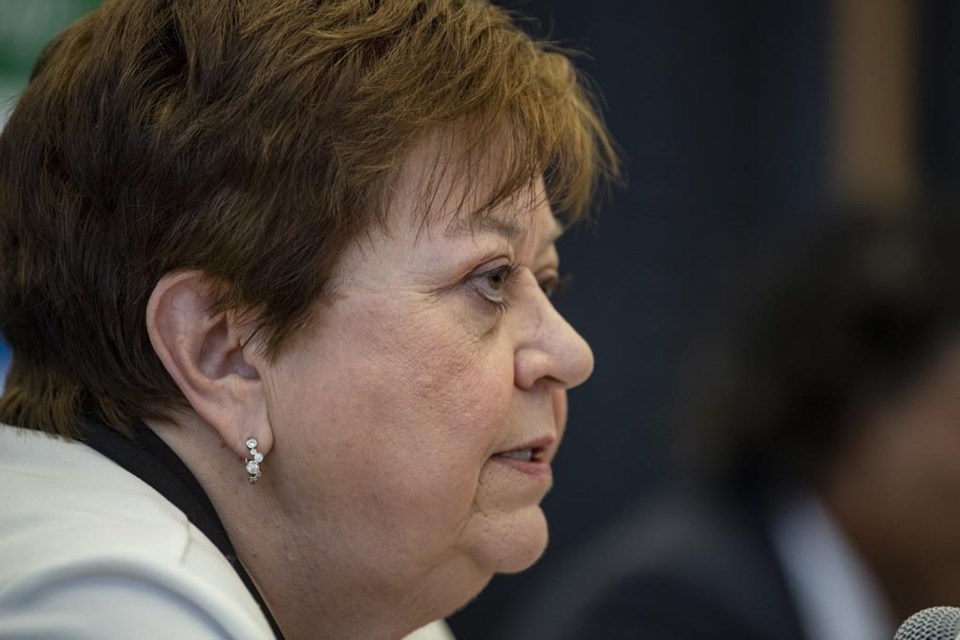REGINA — Saskatchewan is flush with cash and out of the red after it brought innearly $2-billion during the first three months of the year, mostly from rising oil and potash prices.
With excess cash in hand, and what is projected to be first balanced budget in about seven years, the Saskatchewan Party government said it's time to share the wealth.
"These resources belong to all Saskatchewan people," Finance Minister Donna Harpauer said Tuesday.Â
Premier Scott Moe announced Monday that his government would begin by handing out $500 cheques to 900,000 residents this fall.Â
To qualify for the one-time rebate, residents have to be 18 or older and must have last year's income tax return filed by Oct. 31.
Harpauer said the government is also reversing its plan to add provincial sales tax to gym memberships and some recreational activities, which was to have taken effect in October. However, it still plans to impose the tax on ticket admissions, sporting events, concerts and theatres.
Harpauer said the government is not using the $450 million it is spending on the cheques for education and health care, because should natural resource prices fall, there wouldn't be enough revenue to support continued additional spending.Â
"We don't think these prices will hold. Should they, then we'll make different decisions going forward. But there's a number of factors that are creating extremely high prices right now," Harpauer said.
Saskatchewan has benefited from rising commodity prices since Russia invaded Ukraine in February, Harpauer said. A shortage of supply has also driven up oil and potash prices.Â
"We didn't create the war. And yes, we are benefiting. … Our commodities are benefiting, and we're not the only jurisdiction that is," Harpauer said.
In the first three months of the year, Saskatchewan made more than $1 billion from potash and more than $500 million from oil.
That's enough money for the province to balance its 2022-23 budget, which had a projected deficit of nearly $500 million in April. Now the province is projecting a $1-billion surplus for the year after also paying down $1 billion in debt.Â
The last time Saskatchewan had a balanced budget was in 2014-15 when it reported a $52-million surplus. The following year, the province was in the red as oil prices dropped and continued to stay there until this year.Â
"It is a huge moment that it's not only balanced, but it's balanced so strongly," Harpauer said of the 2022-23 budget.
"However, I will still be very concerned as I enter into the deliberations for the next budget. We cannot assume that prices will stay this high. We cannot get caught up in the volatility of resource revenues."
Saskatchewan's NDP has been calling for affordability relief since March.Â
Trent Wotherspoon, the Opposition finance critic, criticized the government for "hoarding the extra dollars for months" while residents struggled with the rising cost of living driven by inflation.
"What we see here today is far too late and also inadequate," Wotherspoon said Tuesday.
"We see a one-time payment that gives Saskatchewan people back a bit of their own money, that with the other hand, we see the government continue to pile on with their hikes to power, hikes to energy, and no relief on the fuel tax."
This report by The Canadian Press was first published on Aug. 23, 2022.Â
Mickey Djuric, The Canadian Press




